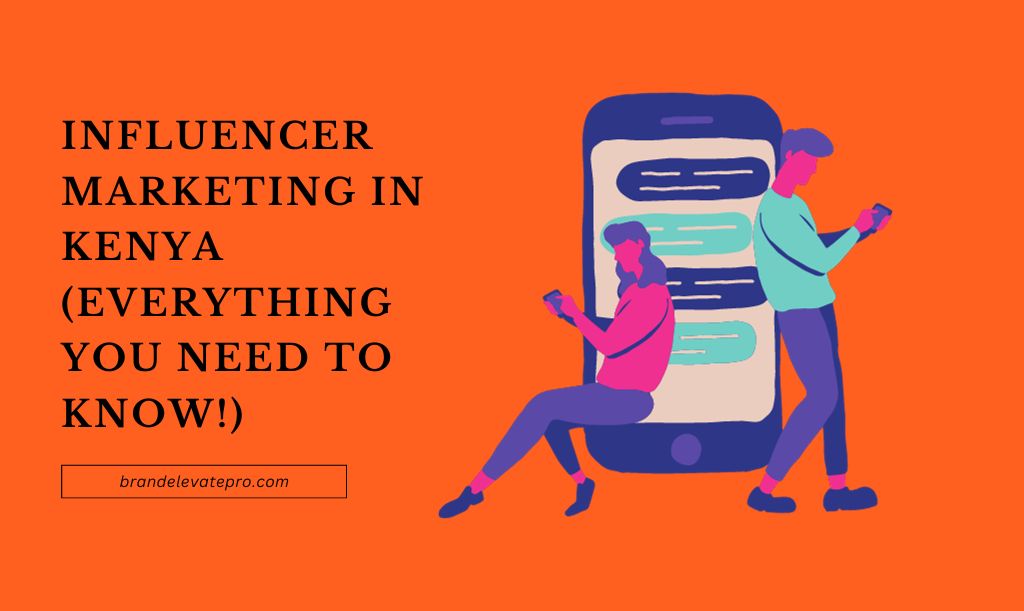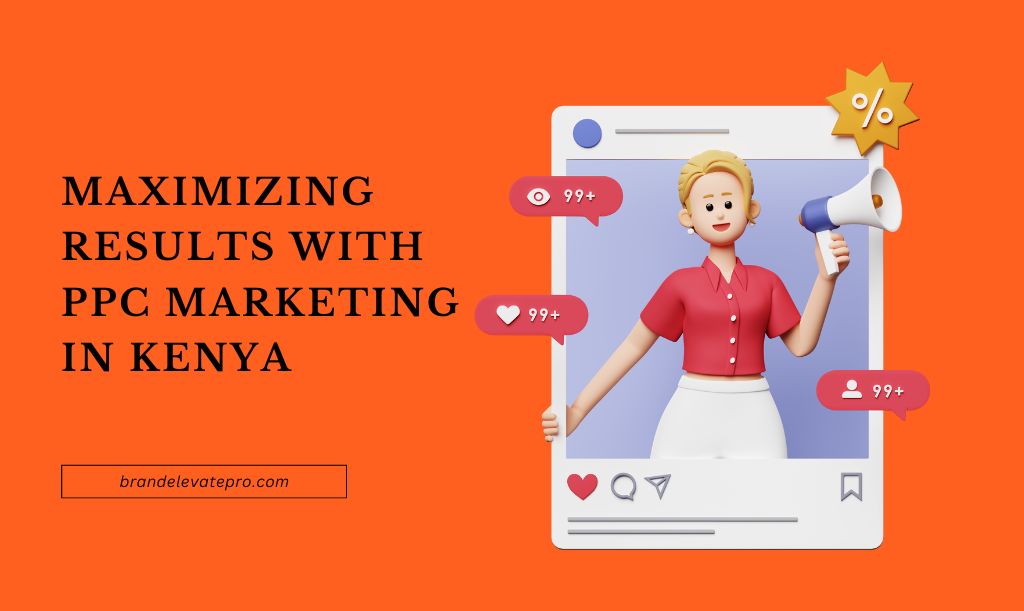In the digital age, where social media dominates our lives, influencer marketing has emerged as a powerful strategy for brands to connect with their target audience.
But what exactly is influencer marketing?
Well, it’s like having a trusted friend recommend a product or service to you, except this “friend” is actually an influential person on social media.
Influencer marketing involves collaborating with individuals who have a significant following on platforms such as Instagram, YouTube, or TikTok, and leveraging their influence to promote products or services.
These influencers are not just regular people; they have built a strong personal brand and reputation in specific niches like fashion, beauty, travel, or fitness.
They possess the power to sway consumer opinions and purchasing decisions through authentic content creation and engagement with their followers.
Think of them as opinion leaders who have cultivated loyal online communities that hang onto their every word.
By partnering with these influencers, brands can tap into their influence and credibility to reach and engage audiences in an organic way.
Rise And Popularity Of Influencer Marketing In Kenya

Over the past few years, influencer marketing has taken Kenya by storm.
With increased internet penetration rates and smartphone usage among Kenyan consumers, social media platforms have become vibrant hubs for information exchange and content consumption.
This digital ecosystem has provided fertile ground for the rise of influencers who have amassed substantial followings from diverse demographics.
The popularity of influencer marketing in Kenya can be attributed to several factors.
Firstly, Kenyan consumers are becoming more discerning about traditional advertising methods; they crave authenticity and genuine connections with brands.
Influencers bridge this gap by delivering personalized content that resonates with their followers’ interests and aspirations.
Moreover, influencers often reflect the socio-cultural fabric of Kenyan society by championing local brands/products and advocating for social causes.
This has further fueled their popularity, as consumers increasingly align themselves with brands that share their values.
Influencer marketing in Kenya has also thrived due to the relatively low barriers to entry.
Anyone with a smartphone and compelling content can become an influencer, leading to a diverse pool of influencers across various niches.
Additionally, the cost-effectiveness of this marketing approach compared to traditional advertising channels has attracted both established brands and emerging businesses looking to maximize their reach within the Kenyan market.
So, with its ability to build trust, drive engagement, and reach target audiences effectively, it’s no wonder that influencer marketing is booming in Kenya.
As we delve deeper into this article, we will explore the unique landscape of Kenyan influencers and the incredible benefits they bring to brands operating in this dynamic market.
Understanding the Kenyan Influencer Landscape
Social media has revolutionized the way people connect and share information, and Kenya is no exception to this trend.
In the Kenyan influencer landscape, several platforms have gained significant popularity among content creators.
Instagram, with its visually appealing nature, stands out as one of the most embraced platforms by Kenyan influencers.
Its emphasis on photos and videos allows influencers to engage with their audience through stunning visual content.
Additionally, YouTube has emerged as a preferred platform for longer-form content, where Kenyan influencers share vlogs, tutorials, and lifestyle advice.
Most Popular Types Of Influencers In Kenya
Kenya’s influencer scene encompasses a wide array of niches that cater to different interests and passions of its diverse population.
Fashion influencers dominate the landscape with their impeccable sense of style and ability to inspire trends among Kenyans looking for fashion-forward inspiration.
They collaborate with local designers and brands to create captivating content that resonates with their followers.
Beauty influencers also hold a significant influence over their audiences in Kenya.
From makeup tutorials to skincare routines tailored for African skin types, these individuals have mastered the art of enhancing natural beauty while promoting local beauty brands.
Additionally, travel influencers have gained substantial traction in Kenya’s influencer market due to the country’s breathtaking landscapes and diverse wildlife.
Through their captivating storytelling ability and stunning visuals captured during their adventures across Kenya’s national parks or hidden gems along its coastlines, they inspire wanderlust within their followers.
Key Characteristics And Qualities Of Successful Kenyan Influencers
Successful Kenyan influencers possess several key characteristics that set them apart from others in this competitive realm.
Authenticity is paramount; they stay true to themselves while engaging with their audience genuinely.
Kenyan influencers who are transparent, share personal experiences, and maintain a genuine connection with their followers tend to enjoy greater success.
Another crucial quality is consistency in content creation and posting.
Successful Kenyan influencers consistently deliver high-quality content that resonates with their audience.
They understand the importance of maintaining a regular presence on social media platforms, thereby establishing themselves as reliable sources of information or entertainment.
Moreover, successful Kenyan influencers are skilled storytellers who can captivate their audience with engaging narratives.
They possess the ability to turn everyday experiences into fascinating tales that leave lasting impressions on their followers.
By connecting emotionally with their audience through relatable stories, they build strong bonds of trust and loyalty.
Overall, Kenyan influencers thrive on their ability to create compelling content within specific niches while staying true to themselves and connecting genuinely with their followers.
Watch this:
Benefits of Influencer Marketing in Kenya
One of the biggest advantages of influencer marketing in Kenya is its ability to significantly increase brand awareness and expand reach among the local consumer base.
In a country where social media usage is rapidly growing, influencers have become powerful voices that can effectively amplify a brand’s message.
By partnering with influential individuals who have a dedicated following, businesses can tap into their audience and expose their brand to a larger segment of the Kenyan population.
With each post or video featuring a product or service, brands can gain significant visibility, generating buzz and interest around their offerings.
Moreover, influencers often possess an intimate understanding of their audience’s preferences and interests.
They know what resonates with their followers and how to create content that captures attention.
This targeted approach helps brands connect with potential customers who are more likely to be interested in what they have to offer.
Through collaboration with influencers whose followers align with their target market, businesses can increase the chances of reaching people who are genuinely interested in their products or services.
This not only boosts brand awareness but also enhances the likelihood of converting those aware consumers into loyal customers.
Enhanced Credibility And Trust Through Influencer Endorsements
Influencer endorsements play a vital role in building credibility and establishing trust between brands and consumers in Kenya.
Influencers are seen as reliable sources by their followers, often regarded as knowledgeable experts within specific niches such as beauty, fashion, travel, or food.
When an influencer aligns themselves with a particular brand or product by endorsing it through content creation or sponsored posts, they imbue that endorsement with authenticity.
Kenyan consumers tend to trust recommendations from figures they admire on social media platforms.
By leveraging influencer marketing, brands can leverage this trust to validate their products or services.
When an influencer speaks positively about a brand and its offerings, their followers are more likely to perceive it as a genuine recommendation.
This endorsement can instill confidence in potential consumers, leading them to consider the brand as reputable and trustworthy.
As a result, influencer marketing in Kenya can help businesses build positive brand perception and ultimately drive higher conversions and sales.
The Challenges and Limitations of Influencer Marketing in Kenya
In the vibrant world of influencer marketing in Kenya, there’s an unfortunate side effect that can dim its luster: the presence of fake followers and engagement fraud.
While most Kenyan influencers strive to build genuine connections with their audience, a small number resort to deceitful tactics for personal gain.
These influencers may purchase fake followers or engagement on social media platforms, such as likes, comments, and shares.
This practice not only compromises the integrity of influencer marketing but also affects brands’ ability to accurately evaluate an influencer’s true reach and impact.
It becomes challenging for businesses to identify genuine influencers who can effectively sway consumer opinions.
To combat this issue, brands are increasingly relying on thorough vetting processes, scrutinizing an influencer’s engagement patterns and audience demographics before collaborating with them.
Lack of Standardized Metrics for Measuring Influencer Effectiveness in Kenya
Another challenge faced by both brands and influencers in Kenya is the lack of standardized metrics for measuring influencer effectiveness.
Unlike more established markets where guidelines exist for evaluating an influencer’s performance, Kenya still lacks unified standards for determining success in this field.
Metrics like reach, impressions, engagement rates, conversions, and return-on-investment (ROI) vary significantly across different campaigns and industries.
This disparity makes it challenging to set reasonable benchmarks or accurately compare results between campaigns or even different influencers within the same industry niche.
Consequently, brands often rely on subjective assessments rather than objective data when assessing an influencer’s effectiveness.
To address this issue, the industry is gradually moving towards developing standardized metrics tailored specifically to the Kenyan market.
By establishing common measurement practices that consider factors unique to Kenya – such as cultural nuances and local consumer behavior – both brands and influencers can gain a clearer understanding of campaign performance and ensure transparent evaluations.
Limited Regulations Governing Influencer Marketing Practices in the Country
Unlike some countries that have implemented regulatory frameworks to govern influencer marketing, Kenya currently lacks comprehensive regulations specific to this field.
While consumer protection laws exist, they often fail to address the evolving landscape of influencer marketing adequately.
As a result, influencers and brands operate in a relatively unregulated environment.
This lack of regulation can lead to instances where unethical practices go unchecked.
For instance, some influencers may promote products or services without proper disclosure, potentially misleading their followers.
Without clear guidelines regarding transparency and disclosure requirements, determining whether an influencer’s content is sponsored or organic becomes tricky for consumers.
To establish trust and foster ethical practices within the industry, it is crucial for Kenya to develop industry-specific regulations.
These regulations should outline standards for transparent disclosures by influencers regarding paid partnerships or promotional content.
By doing so, both consumers and brands can make informed decisions while nurturing a more trustworthy ecosystem for influencer marketing in Kenya.
Watch this:
The Role of Micro-Influencers in the Kenyan Market
Micro-influencers are gaining significant traction in the Kenyan market, offering a unique advantage for brands looking to reach specific niche audiences.
Unlike macro-influencers who have a massive following, micro-influencers typically have a smaller but highly engaged audience.
This allows them to develop deeper connections and foster stronger relationships with their followers.
In Kenya, micro-influencers are often experts or enthusiasts within their respective fields, such as fitness, food, or technology.
What makes micro-influencers particularly powerful is their authenticity and relatability.
They are seen as more approachable and trustworthy by their followers compared to celebrities or larger influencers.
Their recommendations hold greater weight as they are perceived to be genuine endorsements rather than paid promotions.
Moreover, collaborating with micro-influencers can be cost-effective for brands with limited budgets, allowing them to tap into an engaged audience without breaking the bank.
Cross-Industry Collaborations between Influencers and Brands
In Kenya’s influencer marketing landscape, we’re witnessing an interesting trend: cross-industry collaborations between influencers and brands.
Traditionally, we saw fashion influencers partnering with fashion brands or beauty influencers collaborating with cosmetic companies.
However, there has been a shift towards more diverse collaborations that transcend industry boundaries.
For instance, we now witness fitness influencers partnering with food and beverage brands to promote healthy products or travel influencers working alongside hospitality brands to showcase luxurious destinations.
These cross-industry collaborations not only enable brands to access new audiences but also provide valuable content variety for the influencer’s followers.
In such partnerships, both parties benefit from each other’s expertise and brand identity while creating unique and engaging campaigns that resonate with Kenyan consumers on a deeper level.
The Impact of Influencer Marketing on Small Businesses in Rural Areas
Influencer marketing has proven to be a game-changer for small businesses in rural areas of Kenya.
These businesses often face challenges in reaching wider audiences due to limited resources and geographical constraints.
However, by collaborating with local influencers who have a strong presence on social media, these businesses can overcome these hurdles.
Influencers act as powerful advocates, showcasing products or services to their followers and generating interest and awareness in the market.
This increased visibility can help small businesses expand their customer base beyond their immediate locality, attract tourists or urban consumers, and ultimately boost sales.
Moreover, influencer marketing has the potential to create a ripple effect within rural communities.
When influencers highlight local products or unique cultural experiences, it not only drives economic growth but also preserves traditional crafts and practices.
This sustained impact on rural economies empowers communities while creating opportunities for sustainable development.
Conclusion
Influencer marketing has become an integral part of Kenya’s advertising landscape, offering unique opportunities for brands to connect with consumers across diverse segments.
The rise of micro-influencers has brought authenticity and relatability into focus while cross-industry collaborations have opened doors to innovative campaigns that go beyond traditional boundaries.
Furthermore, the impact of influencer marketing on small businesses in rural areas ensures economic empowerment and cultural preservation.
As influencer marketing continues to evolve and adapt to changing trends, the possibilities for brands and influencers alike are endless.
With strategic collaborations and creative campaigns, the future of influencer marketing in Kenya looks promising, offering exciting opportunities for growth, engagement, and success.
Related Articles:
- https://brandelevatepro.com/affiliate-networks-in-kenya/
- https://brandelevatepro.com/blogging-in-kenya/


